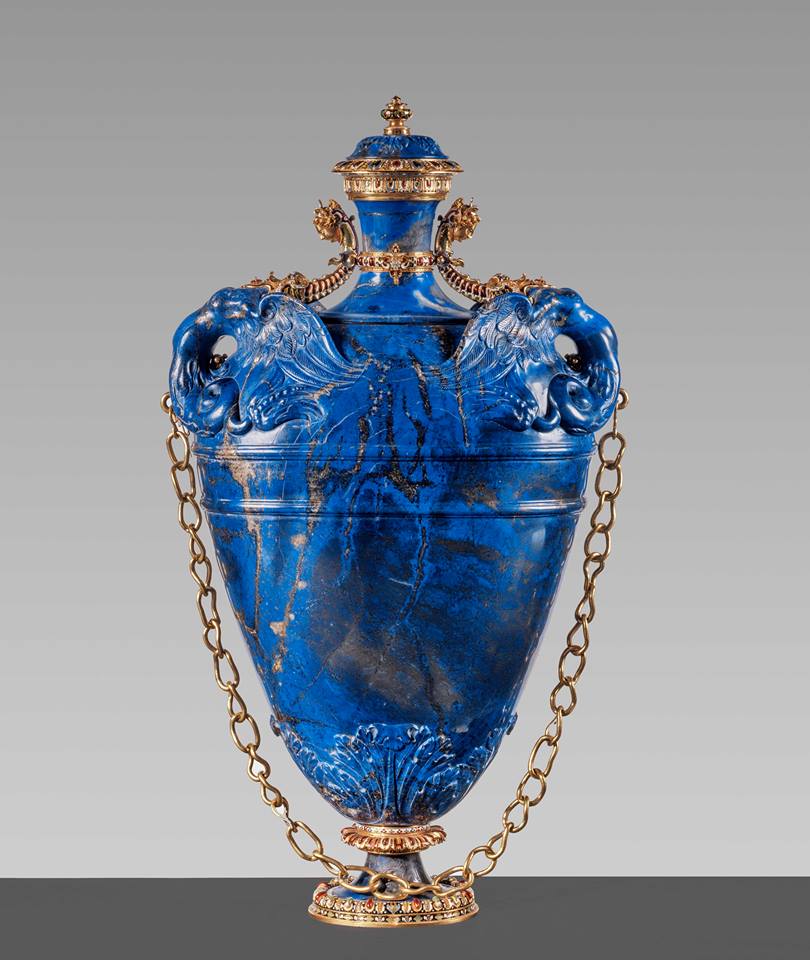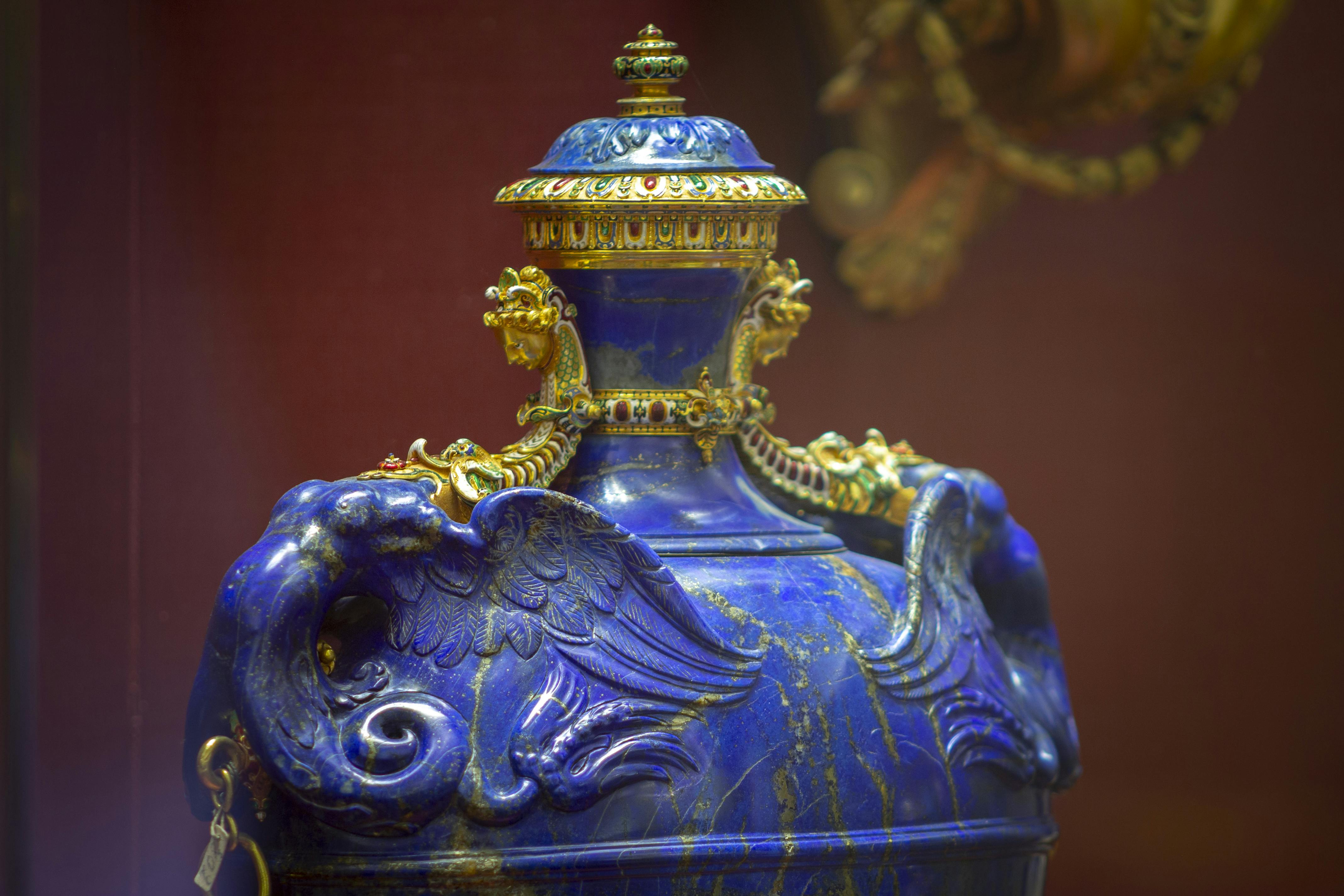“Blue Magic,” a stunning artifact crafted in the 16th century, stands as a breathtaking testament to the artistry and craftsmanship of the Medici collection. Specifically produced in the Grand-ducal workshop in Florence between 1583 and 1584, this remarkable flask showcases the pinnacle of Renaissance artistry. Designed by the esteemed architect Bernardo Buontalenti, it features exquisite mounts made by the celebrated Flemish goldsmith Jacques Bijlivert (1550-1603), elevating it to a symbol of artistic excellence.
Masterful Craftsmanship and Materials
This artifact is carved from a single monolithic block of lapis lazuli, measuring 16 inches (40.5 cm) in height. Since its inception, “Blue Magic” has captivated art lovers and collectors alike with its fantastical and elegant design. The hardstone carving demonstrates the refined techniques employed by artisans of the Renaissance, showcasing an extraordinary level of skill and precision. An unknown sculptor meticulously crafted the lapis lazuli, working from preliminary drawings by Buontalenti, resulting in a bold and expressive interpretation of the artistic traditions of the time.

Innovation and Opulence in Design
Complementing the intricately carved stone are exquisite gold and enamel fittings created by Bijlivert, reflecting meticulous attention to detail. The harmonious combination of lapis lazuli, gold, and enamel highlights the opulence of the Medici era and underscores the artistic innovation that characterized the period. The flask’s design not only exemplifies the aesthetic preferences of the time but also embodies the Medici family’s patronage of the arts, contributing significantly to the cultural richness of the Renaissance.

Enduring Cultural Significance
“Blue Magic” remains one of the most admired treasury objects ever created, celebrated for its artistic excellence and historical significance. It serves as a symbol of the Medici’s enduring legacy in fostering creativity and craftsmanship, bridging the gap between art and functional objects. This exquisite flask not only represents the pinnacle of Renaissance artistry but also continues to inspire awe and admiration in contemporary audiences, solidifying its place in the annals of art history.

In conclusion, “Blue Magic” is not just a decorative piece; it embodies the convergence of art, culture, and history during the Renaissance. Its legacy persists, inviting future generations to appreciate the extraordinary achievements of a bygone era while recognizing the timeless beauty that transcends time.

